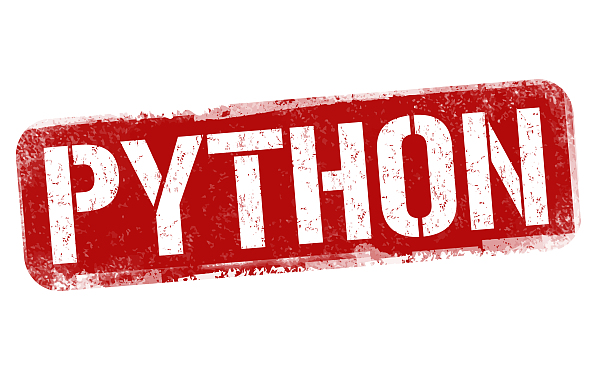使用 Python 和 SerpApi 将 Google Scholar 判例法结果抓取到 CSV
🔨需要什么:了解循环、数据结构、异常处理。serpapi、pandas、urllib库。 ⏱️需要多长时间:阅读和实施约 10-20 分钟。 简介 会刮什么 先决条件 进程 *刮保存案例法结果 链接 zwz 100011 zwz 100032 其他 zwz 100033 zwz 100031 简介 本教程演示博客文章将展示并指导您完成使用 SerpApigoogle-search-results
🔨需要什么:了解循环、数据结构、异常处理。serpapi、pandas、urllib库。
⏱️需要多长时间:阅读和实施约 10-20 分钟。
-
简介
-
会刮什么
-
先决条件
-
进程
*刮保存案例法结果
- 链接
zwz 100011 zwz 100032 其他 zwz 100033 zwz 100031
简介
本教程演示博客文章将展示并指导您完成使用 SerpApigoogle-search-results库的给定搜索查询从所有可用页面中抓取 Google Scholar 判例法结果的过程。
会刮什么

先决条件
独立的虚拟环境
如果您之前没有使用过虚拟环境,请查看使用 Virtualenv 和 Poetry 我的](https://serpapi.com/blog/python-virtual-environments-using-virtualenv-and-poetry/)博客文章的专用[Python 虚拟环境教程以熟悉。
简而言之,它创建了一组独立的已安装库,包括可以在同一系统中相互共存的不同 Python 版本,从而防止库或 Python 版本冲突。
安装库:
pip install pandas
pip install google-search-results
进程
如果不需要解释,在在线IDE中试试。
抓取 Google Scholar 判例法结果并将其保存到 CSV
import os
from serpapi import GoogleSearch
from urllib.parse import urlsplit, parse_qsl
import pandas as pd
def case_law_results():
print("Extracting case law results..")
params = {
"api_key": os.getenv("API_KEY"), # SerpApi API key
"engine": "google_scholar", # Google Scholar search results
"q": "minecraft education", # search query
"hl": "en", # language
"start": "0", # first page
"as_sdt": "6" # case law results. Wierd, huh? Try without it.
}
search = GoogleSearch(params)
case_law_results_data = []
loop_is_true = True
while loop_is_true:
results = search.get_dict()
print(f"Currently extracting page №{results['serpapi_pagination']['current']}..")
for result in results["organic_results"]:
title = result["title"]
publication_info_summary = result["publication_info"]["summary"]
result_id = result["result_id"]
link = result["link"]
result_type = result.get("type")
snippet = result["snippet"]
try:
file_title = result["resources"][0]["title"]
except: file_title = None
try:
file_link = result["resources"][0]["link"]
except: file_link = None
try:
file_format = result["resources"][0]["file_format"]
except: file_format = None
cited_by_count = result.get("inline_links", {}).get("cited_by", {}).get("total", {})
cited_by_id = result.get("inline_links", {}).get("cited_by", {}).get("cites_id", {})
cited_by_link = result.get("inline_links", {}).get("cited_by", {}).get("link", {})
total_versions = result.get("inline_links", {}).get("versions", {}).get("total", {})
all_versions_link = result.get("inline_links", {}).get("versions", {}).get("link", {})
all_versions_id = result.get("inline_links", {}).get("versions", {}).get("cluster_id", {})
case_law_results_data.append({
"page_number": results['serpapi_pagination']['current'],
"position": result["position"] + 1,
"result_type": result_type,
"title": title,
"link": link,
"result_id": result_id,
"publication_info_summary": publication_info_summary,
"snippet": snippet,
"cited_by_count": cited_by_count,
"cited_by_link": cited_by_link,
"cited_by_id": cited_by_id,
"total_versions": total_versions,
"all_versions_link": all_versions_link,
"all_versions_id": all_versions_id,
"file_format": file_format,
"file_title": file_title,
"file_link": file_link,
})
if "next" in results["serpapi_pagination"]:
search.params_dict.update(dict(parse_qsl(urlsplit(results["serpapi_pagination"]["next"]).query)))
else:
loop_is_true = False
return case_law_results_data
def save_case_law_results_to_csv():
print("Waiting for case law results to save..")
pd.DataFrame(data=case_law_results()).to_csv("google_scholar_case_law_results.csv", encoding="utf-8", index=False)
print("Case Law Results Saved.")
刮存判例法结果解释流程
导入库:
import os
from serpapi import GoogleSearch
from urllib.parse import urlsplit, parse_qsl
import pandas as pd
-
pandas将用于轻松地将提取的数据保存到 CSV 文件。 -
urllib将用于分页过程。 -
os用于返回 SerpApi API 密钥环境变量的值。
创建,将搜索参数传递给 SerpApi 并创建一个临时list()来存储提取的数据:
params = {
"api_key": os.getenv("API_KEY"), # SerpApi API key
"engine": "google_scholar", # Google Scholar search results
"q": "minecraft education", # search query
"hl": "en", # language
"start": "0", # first page
"as_sdt": "6" # case law results
}
search = GoogleSearch(params)
case_law_results_data = []
as_sdt用于确定和过滤 API 调用中的目标法院。参考支持的 SerpApi Google Scholar Courts或在 Google Scholar上选择法院并将其传递给as_sdt参数。
注意:如果要搜索密苏里州上诉法院的结果,as_sdt参数将变为as_sdt=4,204。注意4,,没有它会出现文章结果。
设置while循环,添加if语句即可退出循环:
loop_is_true = True
while loop_is_true:
results = search.get_dict()
# extraction code here...
# if next page is present -> update previous results to new page results.
# if next page is not present -> exit the while loop.
if "next" in results["serpapi_pagination"]:
search.params_dict.update(dict(parse_qsl(urlsplit(results["serpapi_pagination"]["next"]).query)))
else:
loop_is_true = False
search.params_dict.update()将分割下一页 URL 并将更新的搜索参数值作为字典传递给GoogleSearch(search)。
在for循环中提取结果并处理异常:
for result in results["organic_results"]:
title = result["title"]
publication_info_summary = result["publication_info"]["summary"]
result_id = result["result_id"]
link = result["link"]
result_type = result.get("type")
snippet = result["snippet"]
try:
file_title = result["resources"][0]["title"]
except: file_title = None
try:
file_link = result["resources"][0]["link"]
except: file_link = None
try:
file_format = result["resources"][0]["file_format"]
except: file_format = None
# if something is None it will return an empty {} dict()
cited_by_count = result.get("inline_links", {}).get("cited_by", {}).get("total", {})
cited_by_id = result.get("inline_links", {}).get("cited_by", {}).get("cites_id", {})
cited_by_link = result.get("inline_links", {}).get("cited_by", {}).get("link", {})
total_versions = result.get("inline_links", {}).get("versions", {}).get("total", {})
all_versions_link = result.get("inline_links", {}).get("versions", {}).get("link", {})
all_versions_id = result.get("inline_links", {}).get("versions", {}).get("cluster_id", {})
将结果作为字典{}附加到临时list():
case_law_results_data.append({
"page_number": results['serpapi_pagination']['current'],
"position": position + 1,
"result_type": result_type,
"title": title,
"link": link,
"result_id": result_id,
"publication_info_summary": publication_info_summary,
"snippet": snippet,
"cited_by_count": cited_by_count,
"cited_by_link": cited_by_link,
"cited_by_id": cited_by_id,
"total_versions": total_versions,
"all_versions_link": all_versions_link,
"all_versions_id": all_versions_id,
"file_format": file_format,
"file_title": file_title,
"file_link": file_link,
})
Return提取数据:
return case_law_results_data
保存返回的case_law_results()数据to_csv():
pd.DataFrame(data=case_law_results()).to_csv("google_scholar_case_law_results.csv", encoding="utf-8", index=False)
-
data中的参数DataFrame是您的数据。 -
encoding='utf-8'参数只是为了确保所有内容都将正确保存。我明确地使用了它,甚至认为它是一个默认值。 -
index=False参数以删除默认的pandas行号。
友情链接
-
在线IDE中的代码
-
谷歌学术有机搜索结果 API
-
SerpApi 支持 Google Scholar 法院
-
Google Scholar 法院列表
其他
如果您有任何要分享的内容、任何问题、建议或无法正常工作的内容,请通过 Twitter 与@dimitryzub或@serp_api联系。
您的,Dimitry 和 SerpApi 团队的其他成员。
祖兹 100093 * *
加入我们Reddit|Twitter|YouTube
添加功能请求💫 或错误🐞
更多推荐
 已为社区贡献126473条内容
已为社区贡献126473条内容








所有评论(0)